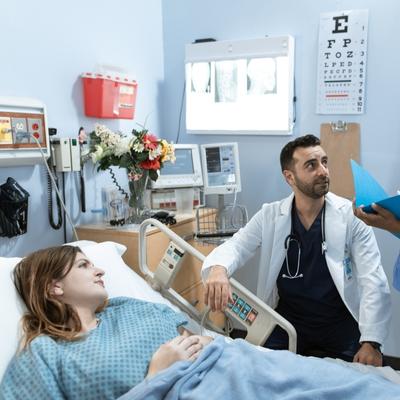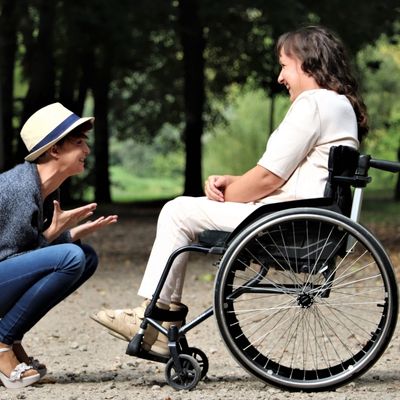In the realm of rehabilitation, patient lifts stand as pivotal tools that bridge the gap between immobility and independence. These innovative devices play a crucial role in supporting recovery, facilitating mobility training, and ensuring safe transitions for patients on their journey to regained autonomy. As we delve into the world of rehabilitation patient lifts, we'll uncover how these versatile tools are revolutionizing therapy practices, enhancing patient safety, and accelerating recovery processes. Whether you're a healthcare professional, a patient undergoing rehabilitation, or a caregiver, understanding the transformative power of patient lifts in rehabilitation settings is key to maximizing recovery potential and ensuring safe, effective therapy practices.
The Evolution of Rehabilitation Techniques: From Manual Assistance to Lift-Supported Therapy
The approach to rehabilitation and mobility training has undergone significant changes, reflecting advancements in technology and a deeper understanding of recovery processes.
Traditional Rehabilitation Methods
- Heavy reliance on manual assistance from therapists
- Limited repetitions due to physical constraints
- Higher risk of injury for both patients and therapists
- Delayed initiation of mobility training in recovery
Modern Lift-Supported Rehabilitation
- Integration of patient lifts for safer, more efficient therapy
- Increased repetitions and intensity of exercises
- Reduced physical strain on therapists
- Earlier commencement of mobility training in recovery process
- Customizable support levels for progressive therapy
Key Features of Patient Lifts in Rehabilitation
Essential Elements for Effective Rehab Lift Systems
- Adjustable Support: Variable weight-bearing capabilities
- Range of Motion: Allows for diverse movement patterns
- Safety Mechanisms: Emergency stops and fall prevention features
- Comfort Design: Ergonomic harnesses and slings for extended use
- Versatility: Adaptable for various therapy exercises
- Ease of Use: User-friendly controls for therapists
- Portability: Mobile options for different therapy areas
- Data Tracking: Progress monitoring capabilities
Spotlight on Innovative Rehabilitation Lift Solutions

Hoyer Advance-E Power Lift
This versatile electric lift offers features beneficial for various rehabilitation scenarios.
- Smooth electric operation for controlled movements
- Compact design ideal for maneuvering in therapy spaces
- Adjustable base width for stability during exercises
- Compatible with various slings for different therapy needs

Hoyer Deluxe Power Lift
The Deluxe Power Lift provides robust support for more intensive rehabilitation exercises.
- High weight capacity for diverse patient needs
- Powered operation reducing strain on therapists
- Wide lifting range for various therapy activities
- Durable construction for long-term rehab use

Bestlift PL350CT Full Body Patient Lift
This full-body lift offers features that can be adapted for various rehabilitation exercises.
- Compact and foldable design for flexible therapy space use
- Full-body support system for comprehensive exercises
- Adjustable base for navigating therapy equipment
- Smooth-rolling casters for easy repositioning during sessions

Invacare Stand Assist Sling
While not a lift itself, this specialized sling is crucial for sit-to-stand exercises in rehabilitation.
- Designed to support sit-to-stand transitions
- Promotes active patient participation in transfers
- Adjustable to accommodate various patient sizes
- Padded for comfort during extended therapy sessions
Applications of Patient Lifts in Rehabilitation Settings
1. Physical Therapy Departments
In physical therapy settings, patient lifts are instrumental in facilitating a wide range of exercises. They support patients during gait training, balance exercises, and strength-building activities, allowing therapists to safely challenge patients beyond their current abilities.
2. Occupational Therapy
Occupational therapists use patient lifts to simulate daily activities in a controlled environment. Lifts can support patients as they practice transfers, reaching exercises, and other functional tasks essential for independent living.
3. Neurological Rehabilitation
For patients recovering from strokes or other neurological conditions, lifts provide crucial support during the relearning of movement patterns. They allow for safe weight-bearing exercises and help in retraining neural pathways associated with movement.
4. Orthopedic Rehabilitation
In orthopedic rehab, lifts assist in early mobilization after surgeries or injuries. They enable partial weight-bearing exercises, crucial for recovery while protecting healing tissues.
For more insights on how patient lifts are used in various healthcare settings, explore our article on Patient Lifts in Institutional Settings: Hospitals, Nursing Homes, and Rehabilitation Centers.
Challenges and Strategies in Rehabilitation Lift Usage
While patient lifts offer numerous benefits in rehabilitation, there are challenges to address:
Patient Apprehension
Some patients may feel anxious about using lift systems.
Space Constraints
Therapy areas may have limited space for lift systems.
Training Requirements
Ensuring all therapists are proficient in lift operation.
Individualization
Adapting lift use to varied patient needs and recovery stages.
Strategies for addressing these challenges include:
- Implementing patient education programs to build confidence in lift use
- Designing flexible therapy spaces that accommodate lift systems
- Providing comprehensive, ongoing training for all rehabilitation staff
- Utilizing adjustable lift systems that can be customized for individual patient needs
Choosing the Right Rehabilitation Lift: Key Considerations
Selecting the appropriate lift for rehabilitation purposes involves several factors:
For more guidance on selecting the right patient lift for various situations, including rehabilitation settings, read our article on Choosing the Right Patient Lift for Home Use: A Comprehensive Guide.
Maintenance and Care for Rehabilitation Lifts
Proper maintenance of rehabilitation lifts is crucial for ensuring safety and optimal performance:
- Regular Inspections: Conduct daily visual checks and more thorough weekly inspections.
- Cleaning and Disinfection: Clean lift surfaces regularly, following infection control protocols.
- Lubrication: Keep moving parts well-lubricated according to manufacturer guidelines.
- Battery Care: For electric lifts, follow proper charging procedures and monitor battery health.
- Sling Maintenance: Inspect slings for wear and tear, washing them according to manufacturer instructions.
For more detailed information on maintaining patient lifts, including those used in rehabilitation, check out our guide on Patient Lift Maintenance: Essential Tips for Longevity and Safety.
Conclusion: Elevating Rehabilitation Outcomes Through Lift Technology
Patient lifts in rehabilitation settings represent a significant advancement in therapy practices, offering a bridge between assisted and independent movement. By providing safe, controlled environments for mobility training, these devices enable therapists to push the boundaries of traditional rehabilitation, leading to faster recoveries and improved patient outcomes.
The integration of lift technology in rehab not only enhances patient safety and confidence but also protects therapists from the physical strain associated with manual patient handling. This symbiosis of human expertise and technological support creates an optimal environment for recovery, allowing patients to regain independence more efficiently and effectively.
As we continue to witness advancements in lift technology, the future of rehabilitation looks bright. With increasingly sophisticated and adaptable systems, we can anticipate even more personalized and effective therapy programs, further revolutionizing the field of rehabilitation and improving the lives of countless individuals on their journey to recovery.
Enhance Your Rehabilitation Programs with Advanced Lift Solutions
Explore our range of patient lifts suitable for various rehabilitation needs. Our expert team is ready to help you find the perfect lift solution to elevate your therapy practices and improve patient outcomes.
Discover Rehabilitation Lift Solutions








